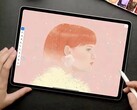In a rather unusual move, raster graphics editor Procreate, lately vowed on X never to introduce generative AI to the illustration app. The company’s stance on this has earned praise from creative and critics concerned about the potential impact of AI on jobs and artistic value.
In the video, the company CEO James Cuda expresses his distaste for generative AI, saying the features in Procreate are “always designed and developed with the idea that a human will be creating something”. The stance is reiterated on the company website with the bold assertion: “AI is not our future”.
We’re never going there. Creativity is made, not generated.
— Procreate (@Procreate) August 18, 2024
You can read more at https://t.co/9Fgh460KVu ✨ #procreate #noaiart pic.twitter.com/AnLVPgWzl3
For the approximately 30 million users of the iPad-only design app, already enamored by its one-time purchase instead of a rolling subscription model, this announcement is undoubtedly good news. For them, and indeed many artists, “Creativity is made, not generated”. Procreate’s stance is a breath of fresh air in an industry where the integration of AI is rapidly becoming prevalent. In contrast, Adobe's foray into AI with Firefly has sparked controversy. Users have clamored against the company’s rather ambiguous terms of service involving the usage and ownership of content, prompting Adobe to respond defensively.
Similarly, other tech companies tend to default to AI adoption only to apologize afterwards when faced with backlash. Apple’s tone-deaf promotional video for the 2024 iPad Pro (8% off on Amazon) and Google's "Dear Sydney" Gemini ad exemplify marketing frustrations. Nevertheless, the overwhelmingly negative responses have failed to deter companies from generative AI gaffes.
Even Wacom, the leading manufacturer of drawing tablets such as the Cintiq 16, has come under fire for using AI-generated promotional imagery. Critics called out the irony of using AI to market a product to artists – the very creatives most directly threatened by generative AI. Wacom has since issued an official apology.
Outright denial of AI involvement in marketing and development of products is another recurring theme, especially among companies that have hitherto forsworn the use of generative AI. In the case of the digital art platform ArtStation which was flooded with anti-AI artwork this January, the company simply took down any protest pieces, claiming a Terms of Service violation. It is AI policies of this nature, which echo OpenAI’s dismissive sentiments about creative jobs, copyright, and the intrinsic value of human artwork that have caused artists to consider leaving the industry.
Attitudes towards generative AI language and image models tend to vary widely within the industry, but among creatives and consumers, AI implementation often carries a negative connotation. A recent Notebookcheck survey showed a 72% disapproval of AI-generated media content.
The ire towards the pervasiveness of AI in art is often justified by the notoriety of most AI companies towards creatives. Generative AI image models are trained on copyrighted works of art to ape that human quality, while the rights to art pieces generated by the model is a rather murky legal question. However with the continuous integration of AI into customary design software amidst lawsuits and copyright infringement claims, it is clear that generative AI is here to stay - which makes Procreate’s unconventional approach quite risky.
Clip Studio Paint made a similar announcement earlier in February, but the app includes several AI-powered tools developed from data it claims creators willingly provided. In this regard, Procreate is clearly an outlier, outrightly referring to gen AI as a "moral threat" to human creativity. It is a risky bet the company is taking, but so far, the response from users has been nothing but positive.



















